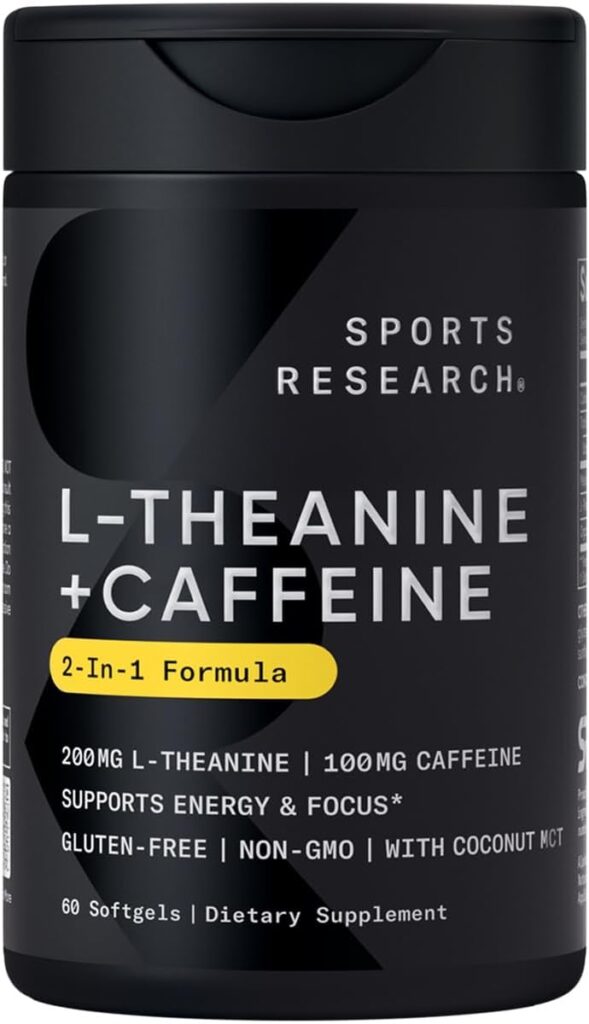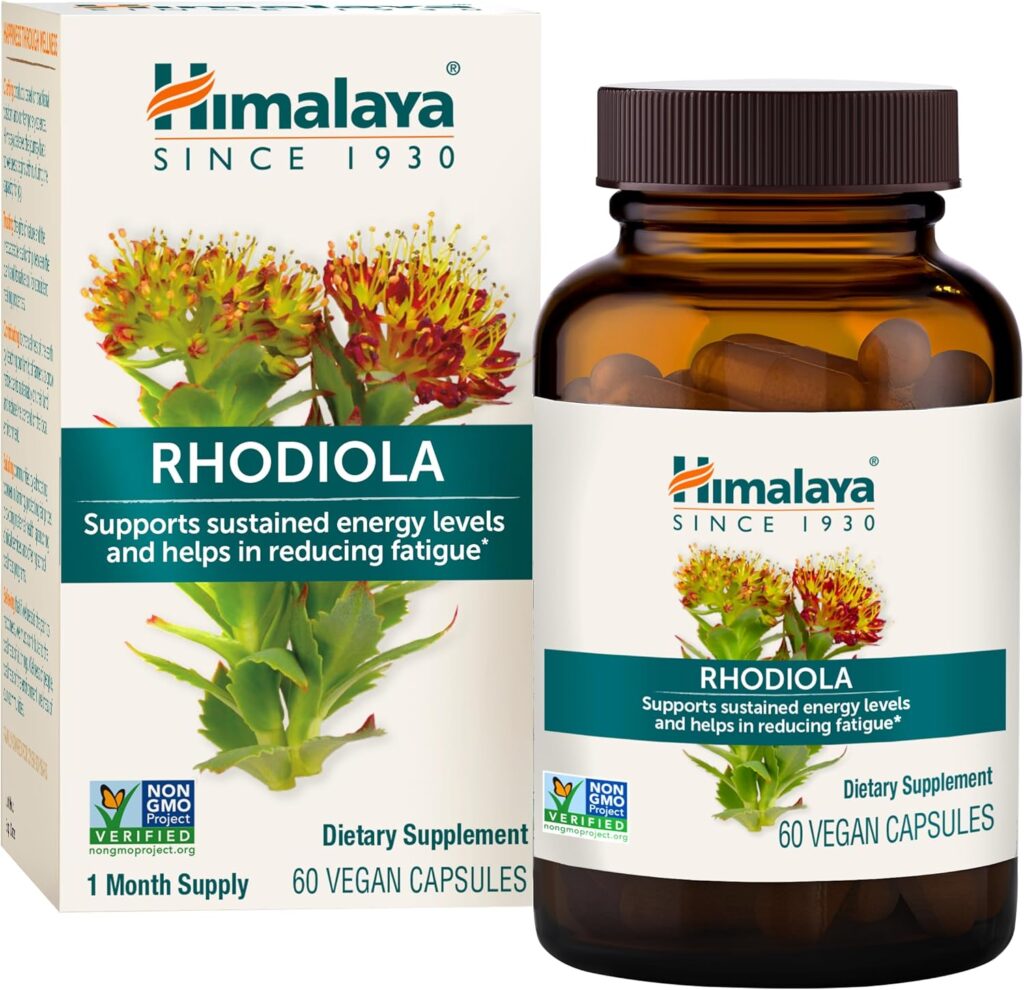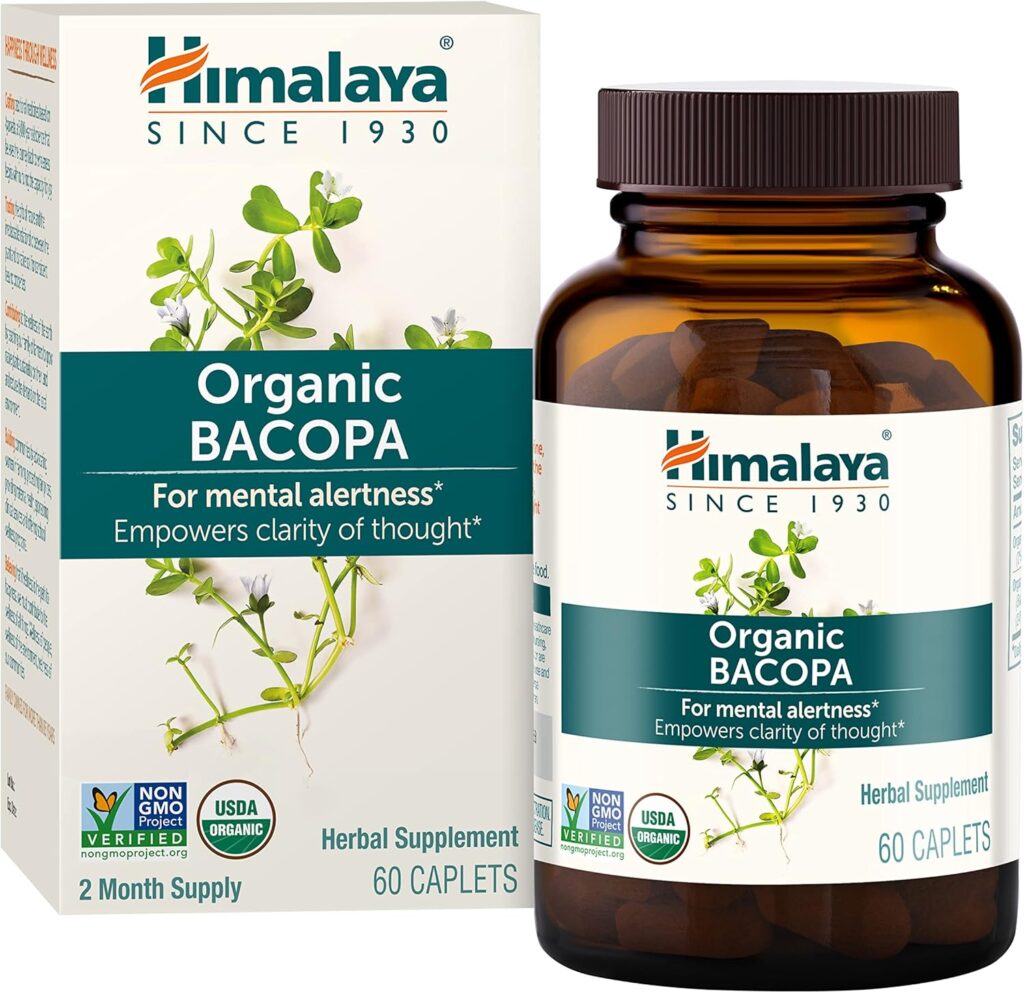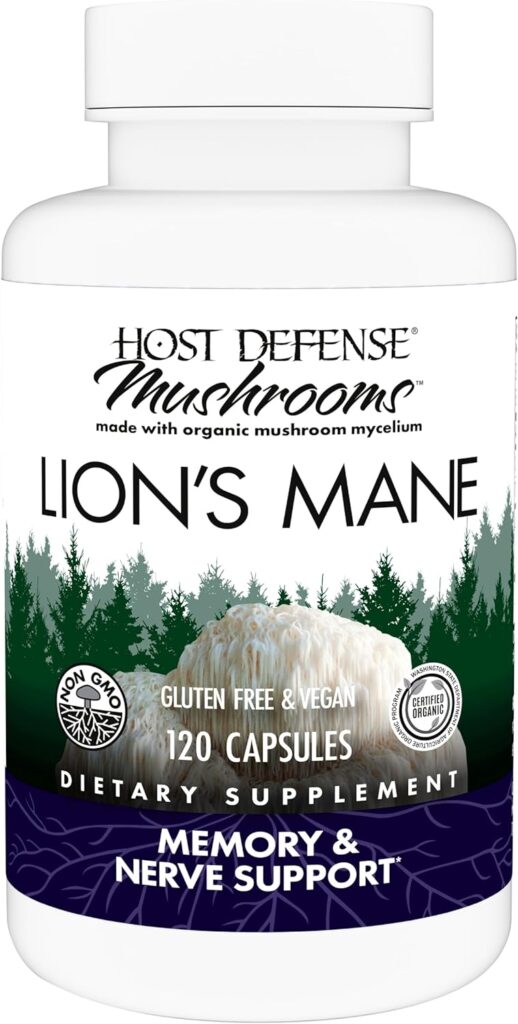Brain fog and fatigue can be incredibly frustrating, especially when you’re trying to be productive or creative. I’ve experienced this mental haze more times than I can count.
Fortunately, there are powerful nootropics that can help clear the fog and boost energy levels.
In this comprehensive guide, I’ll share my experience and research on the most effective nootropics for combating brain fog and fatigue.
Understanding Brain Fog and Fatigue
Brain fog isn’t a medical condition itself, but rather a symptom that can stem from various factors like stress, lack of sleep, poor diet, or underlying health issues. It’s characterized by feelings of mental confusion, forgetfulness, and difficulty concentrating.
Fatigue goes beyond just feeling tired. It’s a state of persistent exhaustion that doesn’t improve with rest alone. When combined with brain fog, it can severely impact cognitive performance and quality of life.
The Science Behind Nootropics
Nootropics work by influencing neurotransmitters, enhancing brain metabolism, or protecting neurons from damage. They can improve various aspects of cognitive function, including memory, focus, creativity, and mental energy.
Romanian psychologist and chemist Corneliu E. Giurgea introduced the concept of nootropics in 1972.
He defined nootropics as compounds that enhance learning and memory, protect the brain, and have very few side effects.
Since then, research in this field has revealed a wide array of natural and synthetic substances with cognitive-boosting potential.
Top Nootropics for Clearing Brain Fog and Boosting Energy
1. Caffeine + L-Theanine: The Dynamic Duo
Caffeine is well-known for increasing alertness and combating fatigue. When paired with L-theanine, an amino acid found in green tea, the benefits are amplified while potential side effects are mitigated.
L-theanine promotes relaxation without sedation, effectively taking the edge off caffeine’s stimulant effects. This synergistic combination results in smooth, focused energy without the jitters or crash often associated with caffeine alone.
A 2008 study published in Nutritional Neuroscience found that the combination of caffeine and L-theanine improved both speed and accuracy of performance on cognitively demanding tasks. I’ve found this stack to be incredibly effective for powering through long writing sessions or tackling complex problems.

To get started, try a ratio of 1:2 caffeine to L-theanine (e.g., 100mg caffeine with 200mg L-theanine) and adjust based on your personal response. Amazon provides a product with both these ingredients L-Theanine + Caffeine as a stack into one softgel.
2. Rhodiola Rosea: An Adaptogenic Herb
Rhodiola Rosea is an adaptogenic herb that’s been used for centuries in traditional medicine. It’s particularly effective at combating fatigue and improving mental performance under stress.
Rhodiola helps your body adapt to physical, chemical, and environmental stress. It works by modulating the release of stress hormones and enhancing the body’s use of oxygen, glucose, and other key nutrients.

A 2000 study in Phytomedicine demonstrated that Rhodiola Rosea extract significantly reduced mental fatigue and improved performance on work-related tasks in physicians during night duty. I’ve found Rhodiola to be especially helpful during periods of high stress or when I need to maintain focus over long periods.
3. Bacopa Monnieri: A Memory Enhancer
If you’re struggling with forgetfulness alongside brain fog, Bacopa Monnieri might be your solution. This herb has been used in Ayurvedic medicine for centuries and has shown promising results in modern scientific studies.
Bacopa works by enhancing the growth of nerve endings, called dendrites, which helps nerve cells communicate with each other. This can lead to improved memory formation and recall, as well as reduced anxiety.

A 2014 meta-analysis published in the Journal of Ethnopharmacology found that Bacopa Monnieri has potential to improve cognition, particularly speed of attention. However, the effects of Bacopa tend to build up over time, so consistency is key.
Bacopa can be particularly effective when combined with other nootropics like Rhodiola or Lion’s Mane for a comprehensive cognitive boost.
4. Lion’s Mane Mushroom: A Neuroprotector
Lion’s Mane mushroom has gained significant attention in recent years for it’s potential cognitive-enhancing and neuroprotective properties. This fungus stimulates the production of nerve growth factor (NGF), a protein that’s crucial for the growth and maintenance of neurons.
A 2009 study in Phytotherapy Research showed that Lion’s Mane mushroom improved cognitive function in older adults with mild cognitive impairment. While more research is needed, many users, myself included, report improved focus and mental clarity with regular use of Lion’s Mane supplements.

5. Modafinil: A Wakefulness Promoter
Modafinil is a prescription medication that’s gained popularity as a cognitive enhancer. It’s primarily used to treat narcolepsy and other sleep disorders, but it’s also known for it’s ability to promote wakefulness and improve cognitive function in healthy people.
A 2015 systematic review in European Neuropsychopharmacology found that modafinil has significant cognitive-enhancing effects in healthy non-sleep-deprived people. It’s particularly effective at improving executive functions, attention, and learning.
However, modafinil is a prescription drug in many countries and should only be used under medical supervision. It’s potential for side effects and long-term impacts is still being studied.
Implementing Nootropics Effectively
Now that we’ve covered some of the best nootropics for reducing brain fog and fatigue, let’s talk about how to use them effectively:
Start Low and Go Slow
Begin with the lowest effective dose and gradually increase if needed. This allows you to gauge your body’s response and minimize potential side effects.
Cycle Your Nootropics
To prevent tolerance buildup, consider cycling your nootropics. For example, you might use Rhodiola for a month, then switch to Bacopa for the next month.
Stack Wisely
Combining different nootropics can lead to synergistic effects. However, it’s crucial to research potential interactions and start with simple stacks before moving to more complex ones.
Listen to Your Body
Pay attention to how you feel. If a nootropic isn’t working for you or is causing side effects, don’t hesitate to stop use.
Prioritize Lifestyle Factors
Nootropics work best when combined with a healthy lifestyle. Ensure you’re getting adequate sleep, regular exercise, and a balanced diet.
Common Pitfalls to Avoid
While nootropics can be powerful tools for cognitive enhancement, there are some common mistakes to watch out for:
Overreliance
Don’t use nootropics as a substitute for poor lifestyle habits. They should complement, not replace, healthy behaviors.
Ignoring Individual Differences
What works for one person may not work for another. Be patient and willing to experiment to find what works best for you.
Neglecting Quality
Always choose high-quality, third-party tested supplements from reputable sources.
Expecting Immediate Results
Some nootropics, like Bacopa, may take weeks or even months to show their full effects. Be patient and consistent.
Adapting Nootropics to Different Scenarios
Different situations may call for different nootropic approaches. Here are some examples:
For Acute Focus
Caffeine + L-Theanine or Modafinil (with prescription) can provide a quick boost for important tasks or meetings.
For Chronic Stress
Adaptogens like Rhodiola Rosea or Ashwagandha can help your body better cope with ongoing stress.
For Long-Term Cognitive Health
Neuroprotective compounds like Lion’s Mane or Omega-3 fatty acids can support brain health over time.
For Creative Work
Some users report enhanced creativity with microdoses of psychedelics, though this remains a controversial and largely unregulated area.
Building on the Basics
As you become more familiar with nootropics, you’ll likely want to explore more advanced concepts and techniques. This might include:
Creating Custom Nootropic Stacks
Tailoring your nootropic regimen to your specific cognitive needs can yield powerful results. For example, you might combine Bacopa for memory enhancement with Rhodiola for stress resistance and Lion’s Mane for neuroprotection.
When creating custom stacks, start simple and gradually add components. Pay close attention to how each addition affects your cognition and overall well-being.
Exploring Lesser-Known Nootropics
While the nootropics mentioned earlier are well-researched and widely used, there’s a large world of lesser-known cognitive enhancers worth exploring. Some examples include:
Noopept
A synthetic nootropic peptide that’s reported to improve memory, learning capacity, and neuroprotection. It’s particularly popular in Russia and Eastern Europe.
Semax
Another synthetic peptide that’s shown promise in enhancing memory, attention, and mood. It’s primarily used in Russia for treating cognitive decline and stroke recovery.
Phenylpiracetam
A more potent derivative of piracetam, known for it’s stimulatory effects and potential to enhance physical performance alongside cognitive function.
When venturing into these less common nootropics, thorough research and caution are essential. Always ask with a healthcare professional before trying new supplements, especially those with limited long-term safety data.
Investigating Emerging Technologies
The field of cognitive enhancement extends beyond traditional nootropics. Some cutting-edge technologies showing promise include:
Transcranial Direct Current Stimulation (tDCS)
This non-invasive brain stimulation technique uses low-level electrical currents to modulate brain activity. Some studies suggest it may enhance various cognitive functions, including learning and memory.
Neurofeedback
This technique helps people to observe their brain activity in real-time and learn to modulate it. It’s being explored for improving attention, reducing anxiety, and enhancing overall cognitive performance.
Virtual Reality (VR) for Cognitive Training
VR technologies are being developed to create immersive brain-training experiences that may be more engaging and potentially more effective than traditional cognitive exercises.
While these technologies are exciting, they’re still in relatively early stages of research for cognitive enhancement purposes. Approach them with curiosity and with caution, and always prioritize safety.
Exercises to Enhance Your Nootropic Journey
To maximize the benefits of your nootropic regimen, consider incorporating these practices:
Keep a Nootropic Journal
Maintain a detailed log of which nootropics you take, when you take them, and how they affect you. This will help you identify patterns and refine your regimen over time.
Include notes on:
- Specific nootropics and dosages
- Time of day taken
- Effects on mood, energy, focus, and any side effects
- Sleep quality and duration
- Diet and exercise on that day
Reviewing this journal often leads to valuable insights into what works best for you.
Practice Mindfulness
Combining your nootropic use with mindfulness exercises can enhance your awareness of their effects and improve overall cognitive function. Try:
- Daily meditation sessions (even just 10-15 minutes can be beneficial)
- Mindful breathing exercises throughout the day
- Body scan techniques to increase bodily awareness
These practices can help you tune into subtle changes in your cognitive state and maximize the benefits of your nootropics.
Cognitive Training
Engage in brain training exercises alongside your nootropic regimen to potentially amplify cognitive benefits. Some options include:
- Dual N-Back tasks for working memory improvement
- Lumosity or BrainHQ games for various cognitive domains
- Learning a new language or musical instrument
Remember, the goal is to challenge your brain in novel ways regularly.
Experiment with Timing
The timing of your nootropic intake can significantly impact it’s effectiveness. Try taking your nootropics at different times of day to see when they’re most effective for you.
For example:
- Caffeine + L-Theanine might work best first thing in the morning
- Bacopa Monnieri is often recommended in the evening because of it’s potentially calming effects
- Adaptogens like Rhodiola might be most beneficial when taken before stressful events
Keep track of these timing experiments in your nootropic journal.
Advanced Nootropic Strategies
As you become more experienced with nootropics, you might want to explore some advanced strategies:
Cycling Protocols
Develop more sophisticated cycling protocols to prevent tolerance and maintain effectiveness. For example:
- 5 days on, 2 days off for stimulatory nootropics
- 3 months on, 1 month off for adaptogens
- Alternating between different nootropics with similar effects monthly
Stacking for Specific Cognitive Domains
Create targeted stacks for enhancing particular aspects of cognition:
- Memory stack: Bacopa Monnieri, Lion’s Mane, and Ginkgo Biloba
- Focus stack: Caffeine, L-Theanine, and Rhodiola Rosea
- Mood stack: St. John’s Wort, SAM-e, and Omega-3 fatty acids
Personalized Genetic Testing
Consider genetic testing to identify potential genetic variations that might influence your response to certain nootropics. For example, variations in the COMT gene can affect dopamine metabolism and potentially influence the effectiveness of dopaminergic nootropics.
Biohacking Techniques
Explore biohacking techniques that can complement your nootropic use:
- Cold therapy (e.g., cold showers or ice baths) for improved mental resilience
- Intermittent fasting for enhanced cognitive clarity
- Optimized sleep environments for better quality rest
Remember, these advanced strategies should be approached cautiously and preferably under the guidance of a healthcare professional.
The Role of Diet in Cognitive Enhancement
While nootropics can be powerful tools, the foundation of cognitive health comes from proper nutrition. Certain dietary approaches can significantly enhance the effectiveness of your nootropic regimen:
The Mediterranean Diet
Rich in fruits, vegetables, whole grains, and healthy fats, the Mediterranean diet has been associated with improved cognitive function and reduced risk of cognitive decline. Key components include:
- Olive oil as the primary source of fat
- Plenty of fish and seafood
- Moderate consumption of poultry, eggs, and dairy
- Limited red meat intake
- Regular consumption of nuts and seeds
Ketogenic Diet
Some people report improved mental clarity and focus on a ketogenic diet, which is high in fats and low in carbohydrates. This diet aims to shift the body’s primary fuel source from glucose to ketones, which some researchers believe may provide more effective energy for the brain.
Intermittent Fasting
Periodic fasting or time-restricted eating has shown potential benefits for cognitive function. It may enhance neuroplasticity, reduce inflammation, and promote the growth of new neurons.
Brain-Boosting Foods
Incorporate these foods known for their cognitive benefits:
- Blueberries: Rich in antioxidants that may improve memory and delay short-term memory loss
- Fatty fish: High in omega-3 fatty acids, crucial for brain health
- Turmeric: Contains curcumin, which may boost memory and stimulate the growth of new brain cells
- Dark chocolate: Contains caffeine and antioxidants that may improve focus and concentration
- Nuts and seeds: Provide vitamin E, which may help prevent cognitive decline
Remember, a balanced diet rich in whole foods is key to supporting overall brain health and enhancing the effects of nootropics.
The Importance of Sleep for Cognitive Function
No nootropic regimen can compensate for chronic sleep deprivation. Quality sleep is crucial for cognitive function, memory consolidation, and overall brain health.
Here are some tips for optimizing your sleep:
Establish a Consistent Sleep Schedule
Go to bed and wake up at the same time every day, even on weekends. This helps regulate your body’s internal clock.
Create a Relaxing Bedtime Routine
Engage in calming activities before bed, such as reading, gentle stretching, or meditation.
Optimize Your Sleep Environment
Ensure your bedroom is dark, quiet, and cool. Invest in a comfortable mattress and pillows.
Limit Screen Time Before Bed
The blue light emitted by electronic devices can interfere with your body’s production of melatonin, the sleep hormone. Try to avoid screens for at least an hour before bedtime.
Consider Sleep-Promoting Supplements
Some natural supplements may help improve sleep quality:
- Melatonin: Can help regulate sleep-wake cycles
- Magnesium: May promote relaxation and improve sleep quality
- Valerian root: Has been used traditionally to improve sleep
Always ask with a healthcare professional before starting any new supplement regimen.
The Role of Exercise in Cognitive Enhancement
Regular physical exercise is one of the most effective ways to improve cognitive function and enhance the effects of nootropics. Exercise has been shown to:
- Increase blood flow to the brain
- Promote the growth of new neurons (neurogenesis)
- Enhance the production of neurotrophic factors that support brain health
- Reduce inflammation and oxidative stress
Aerobic Exercise
Activities like running, cycling, or swimming can improve cardiovascular health and boost cognitive function. Aim for at least 150 minutes of moderate-intensity aerobic exercise per week.
Strength Training
Resistance exercises build muscle but may also improve cognitive function, particularly in older adults. Include strength training sessions 2-3 times per week.
High-Intensity Interval Training (HIIT)
HIIT workouts, which involve short bursts of intense exercise followed by periods of rest, have shown promising results for cognitive enhancement.
Mind-Body Exercises
Practices like yoga and tai chi combine physical movement with mindfulness, potentially offering unique cognitive benefits.
Remember, the best exercise routine is one that you enjoy and can stick to consistently. Experiment with different types of exercise to find what works best for you.
Stress Management and Cognitive Function
Chronic stress can significantly impair cognitive function and negate the benefits of nootropics. Implementing effective stress management techniques is crucial for optimal brain health:
Meditation and Mindfulness
Regular meditation practice can reduce stress, improve focus, and enhance overall cognitive function. Even short daily sessions can be beneficial.
Deep Breathing Exercises
Simple breathing techniques can activate the body’s relaxation response, reducing stress and improving mental clarity.
Time in Nature
Spending time outdoors, especially in green spaces, has been shown to reduce stress and improve cognitive function.
Social Connections
Maintaining strong social relationships can provide emotional support and help buffer against stress.
Hobbies and Leisure Activities
Engaging in enjoyable activities unrelated to work can help reduce stress and provide mental stimulation.
The Future of Nootropics and Cognitive Enhancement
The field of nootropics and cognitive enhancement is rapidly evolving. Here are some exciting areas to watch:
Personalized Nootropics
Advances in genetic testing and artificial intelligence may lead to more personalized nootropic recommendations based on an person’s unique genetic profile and cognitive needs.
Natural Compound Discovery
Ongoing research into traditional medicines and natural compounds may uncover new nootropic substances with powerful cognitive-enhancing properties.
Improved Delivery Methods
New technologies may allow for more effective delivery of nootropic compounds, potentially enhancing their effectiveness and reducing side effects.
Integration with Wearable Technology
The combination of nootropics with real-time biofeedback from wearable devices could allow for more precise and responsive cognitive enhancement strategies.
Ethical and Regulatory Considerations
As cognitive enhancement technologies advance, society will need to grapple with ethical questions and develop suitable regulatory frameworks to ensure safe and equitable access.
Frequently Asked Questions
What are the best nootropics for memory improvement?
Bacopa Monnieri, Lion’s Mane mushroom, and Ginkgo Biloba are among the most well-researched nootropics for memory enhancement.
Can nootropics help with ADHD symptoms?
Some nootropics, like L-Tyrosine and Citicoline, may help improve focus and attention. However, they should not replace prescribed medications without consulting a healthcare professional.
Are there any natural choices to modafinil?
Natural choices that may provide similar wakefulness-promoting effects include Rhodiola Rosea, Panax Ginseng, and B-complex vitamins.
How long does it take for nootropics to start working?
The onset of effects varies widely among different nootropics. Some, like caffeine, work almost immediately, while others, like Bacopa Monnieri, may take several weeks to show noticeable benefits.
Are nootropics safe for long-term use?
Many natural nootropics have a long history of safe use. However, long-term safety data is limited for some newer synthetic nootropics.
It’s always best to ask with a healthcare professional for personalized advice.
Can nootropics improve creativity?
Some users report enhanced creativity with certain nootropics, particularly those that modulate dopamine or promote alpha brain waves. Lion’s Mane mushroom and microdoses of psychedelics are sometimes cited in this context.
Do nootropics interact with prescription medications?
Yes, some nootropics can interact with prescription medications. Always ask with a healthcare provider before combining nootropics with any prescribed drugs.
What’s the difference between nootropics and smart drugs?
“Nootropics” typically refers to cognitive enhancers with low risk of side effects, while “smart drugs” often include prescription medications used off-label for cognitive enhancement.
Can nootropics help with anxiety?
Some nootropics, like L-Theanine and Ashwagandha, have anxiolytic properties and may help reduce anxiety symptoms.
Are there any nootropics that can improve sleep quality?
While not typically classified as nootropics, supplements like melatonin, magnesium, and valerian root may help improve sleep quality, which in turn can enhance cognitive function.
Key Takeaways
- Nootropics can be powerful tools for combating brain fog and fatigue, but they work best as part of a holistic approach to cognitive health.
- Popular options like Caffeine + L-Theanine, Rhodiola Rosea, and Bacopa Monnieri have strong scientific backing for their cognitive-enhancing effects.
- Start with low doses, be patient, and be willing to experiment to find what works best for you.
- Always prioritize safety and quality when choosing nootropic supplements.
- Nootropics are not a substitute for a healthy lifestyle, but rather a complement to good sleep, nutrition, and exercise habits.
